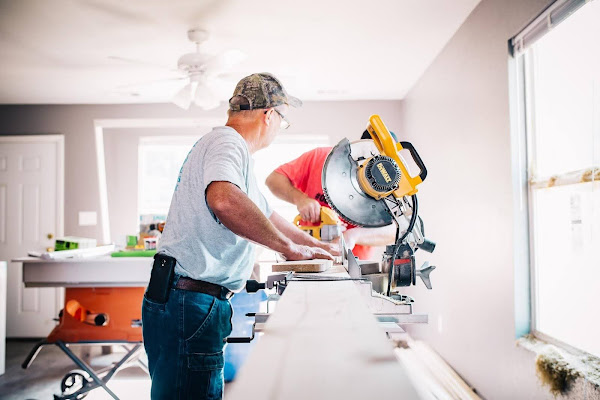Quality and Function: Handling Repairs in Your Family Home
Home repairs can be a stressful reality for many families, but following the right steps to ensure quality and functionality will ultimately make your household run more smoothly. There’s nothing worse than having to repair something you just had fixed or finding out too late that you bought subpar materials - this guide discusses how to handle both issues when repairing things in the home. From sourcing reputable parts and companies to making sure everything works properly after installation, get ready to feel confident about tackling any home repair project!
The difference between minor and major repairs
As a homeowner, it's important to have a basic understanding of the types of repairs your home may need over time. In particular, it's important to understand the difference between minor and major repairs. Minor repairs are typically small-scale fixes that can be completed relatively quickly and with minimal expense, such as replacing a broken light fixture or repairing a leaky faucet. Major repairs, on the other hand, are typically larger-scale projects that require more time, effort, and money to complete, such as repairing or replacing a damaged roof or fixing a major plumbing issue. The folks at BestExteriorsInc.com note that you should always contact a professional for major repairs like these, as they require specialized skills and equipment to do them correctly. Understanding the difference between these two types of repairs can help you budget and plan for unexpected maintenance costs and can ultimately help ensure that your home stays in good condition for years to come.
What to consider before attempting to do it yourself
When it comes to repairing something around your house, it can be tempting to just grab your tools and try to figure it out as you go. However, there are certain circumstances where it's important to investigate the repair work before attempting to do it yourself. For starters, safety is always a top priority. If the repair involves electricity, gas, or plumbing, there could be serious risks involved if you don't know what you're doing. Additionally, there are certain techniques or specialized tools that may be needed to complete the repair successfully. By investigating the work beforehand, you can better assess whether it's within your abilities and ensure that you have the proper tools and knowledge before diving in. In some cases, it may be best to hire a professional to handle the job.
The cost and efficiency of professional services versus DIY
Many people agree that being handy around the house is a valuable and rewarding skill. However, when it comes to more complex repairs, the decision to take on a project without professional help can have costly and time-consuming consequences. For example, attempting to repair a large appliance without proper knowledge or experience may lead to additional damages that require even pricier fixes. On the other hand, hiring a professional repair service can be quite expensive but is most likely the safer and more efficient choice. Before making a decision to hire services to help homeowners, take into account the specific repair needed, the cost of parts and tools, personal skill level, and the overall risk involved. In addition, consider the value of your time and whether it's worth spending hours on a project that could be completed quickly by a professional.
The different materials used in home repairs
If you're a homeowner, then you know that home repairs are just a fact of life. And when it comes to taking care of your property, having a solid understanding of the materials involved can make all the difference. After all, not all materials are created equal - nor do they all behave the same when put to use. From drywall to tile, from wood to concrete, there's plenty to learn about when it comes to the materials used in home repairs. By broadening your understanding of these materials, you can become a more knowledgeable and confident homeowner, able to tackle any repair that comes your way. When in doubt, always consult a professional or do thorough research before choosing materials for your home repairs. They are an investment in the longevity of your home, so it's important to choose wisely.
Home repairs can be costly yet rewarding if done correctly. By understanding the difference between minor and major repairs, discovering why repair work is necessary, considering professional services versus DIY, creating a plan for maintenance checks, broadening your understanding of materials used in repairs, utilizing quality products, and acknowledging physical limitations, you’ll be on your way to doing it yourself with confidence. Don't forget to research safety protocols when repairing. Taking maintenance checks and the use of quality products will put you ahead by ensuring the longevity and safety of your family! Take the plunge today: start researching home repair solutions to find out what project best suits your skill level!
Conclusion
Home repairs are an inevitable part of maintaining your property, but understanding how to approach them can make all the difference. By distinguishing between minor and major repairs, assessing your capabilities before diving into a DIY project, and knowing when to call in professionals, you can save both time and money.Whether you're taking on a small fix or a major renovation, always consider consulting property damage experts to guide you through the process and protect your investment.





.png)



No comments
Thank you for dropping by! I would love to hear what you thought. :)
Thanks!
♥,
Diana